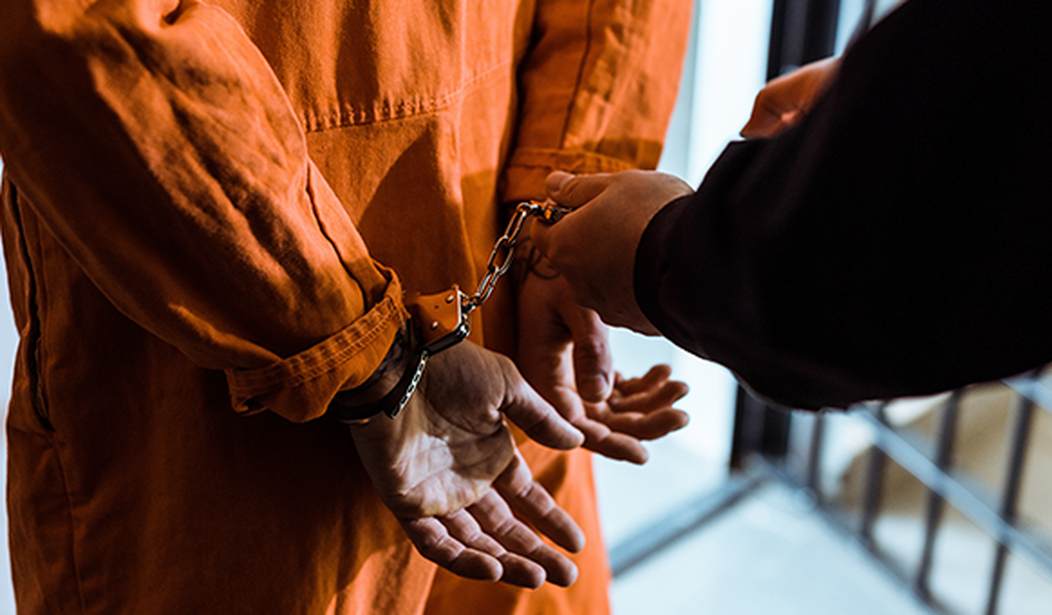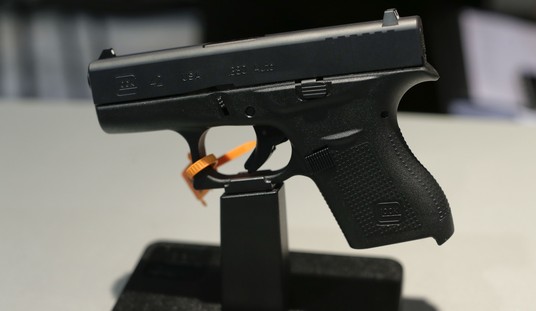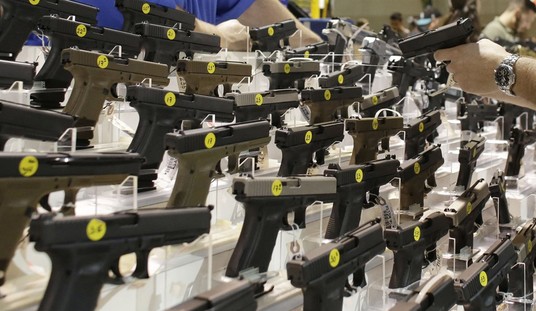The intra-party split between Democrats who want to “re-imagine” the criminal justice system and those who believe that movement is costing the party at the polls is on full display in Santa Fe, New Mexico right now, where Democrats are in control of the state legislature but are divided over a bill that would increase the criminal penalties for illegally possessing a gun.
Under HB 68, “unlawful firearm possession” (say, a legal gun owner who was illegally carrying a firearm without a license) would go from a misdemeanor offense to a fourth-degree felony, while “serious violent felons” caught with a gun could face up to nine years in prison, as opposed to the three-year maximum sentence under current state law.
While some Democrats say the increased penalties are necessary to combat an increase in violent crime, others say the bill is a step in the wrong direction.
Sen. Katy Duhigg (D-Albuquerque) on Monday night asked Albuquerque Police Chief Harold Medina whether he has seen changes in rates of gun use and gun crimes committed since 2020, when the Legislature increased penalties for those kinds of crimes.
“It’s very difficult for us to say that we’ve seen any changes or the use of these enhanced penalties, because of the fact that our courts are bogged down,” Medina said. “We’ve met with the courts. We’ve tried to see what they could do to help us get cases moving. It’s not just the City of Albuquerque, but we have to remember that the cases in the felony courts have really slowed down in the past year, and I haven’t seen a difference.”
Sen. Joseph Cervantes (D-Las Cruces) asked if there is any evidence that increasing the penalties made any difference, and if not, why are lawmakers talking about increasing them again.
According to the Law Offices of the Public Defender, the answer is no.
House Bill 68 would “close gaps in New Mexico law and allow for penalties to reflect the level of danger that they represent to the community or the level of harm suffered by victims,” according to the bill’s sponsor, Rep. Meredith Dixon (D-Albuquerque)
“Filling these gaps in the Criminal Code will improve public safety and ensure that our criminal laws target the most dangerous criminals in our society,” Dixon said.
If the legislation only increased the penalties for those previously convicted of violent felonies who are found with gun, that would be one thing. But when you’re making it a felony offense to simply bear arms without a license, you’re not targeting “the most dangerous criminals in our society,” which is why some progressive criminal justice reform activists say the bill would do far more harm than good.
Opponents of the bill argued that enhanced penalties have not prevented or reduced gun violence in New Mexico.
“Enhanced penalties do not address the root causes of violence,” said LuzHilda Campos, a policy manager with Bold Futures.
Gun use by young New Mexicans recently went up, Campos said, and the reasons why must be addressed. They need access to quality health care, mental health care, substance recovery programs, housing and other supports, Campos said. Other kinds of gun control measures do reduce gun violence, she said.
“This is critical in keeping our schools safe,” Campos said. “Policies and procedures like HB 68 may only drive more young people into the criminal legal system instead of providing those necessary resources.”
Campos clearly isn’t opposed to gun control in theory, which makes me wonder what kind of measures she believes actually do reduce violent crime without imposing criminal penalties. I think that’s a bit of wishful thinking on her part, to be honest, especially with what we’ve seen over the past few years in the state; the passage of “red flag” laws and universal background checks that have done absolutely nothing to prevent a sharp increase in violent crime.
Rikki-Lee Chavez, legislative coordinator for the New Mexico Criminal Defense Lawyers Association, opposed the bill because it would not make their community safer or prevent members of the community from becoming victims of crime.
While accountability is a real part of the justice system, Chavez said, preventing crime should be the broader goal. The way to prevent crimes, Chavez said, is to invest in communities with social work, affordable housing, behavioral health services and outreach to struggling populations.
Call me crazy, but I don’t think that affordable housing or adding more social workers should be the overriding goal of the criminal justice system. The focus there needs to be on accountability and yes, justice for the victims of crime. That’s not to say that increasing access to mental health or engaging in effective violence intervention programs aren’t important, just that they’re largely separate issues from what should be done with someone who’s already accused of violent crimes.
What’s going on in Santa Fe is a good reminder of why I’m not a Democrat, even if I have my issues with the Republican Party. Both sides seem to be missing what to me is the obvious answer here: keep the focus on violent criminals.
That means ensuring that violent criminals face real consequences for their crimes, reducing the number of plea bargains (why increase criminal penalties if 97% of the time cases are going to be plea-bargained down anyway?) for violent offenses, decriminalizing carrying a firearm by those who can legally possess one, and promoting strategies that have a track record of success for reducing shootings and homicides like Operation Ceasefire.
Based on where things stand now, it sounds to me like no matter which wing of the Democratic Party wins this fight, the people of New Mexico are going to lose out on the opportunity to seriously address the growing amount of violent crime in the state. Their next best chance is probably going to come in November, when they’ll head to the polls and hopefully be presented with the opportunity to elect candidates who can tell the difference between a constitutionally protected right and a criminal act of wrongdoing.









Join the conversation as a VIP Member